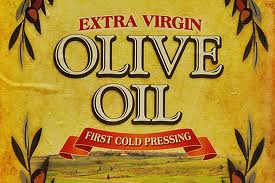Health trends come and go, and some myths need to be demystified, such as the notion that we need a lot of one beneficial food to achieve good health. The Mediterranean diet has become a buzz word in the public, and there is certainly nothing wrong with a diet that emphasizes the benefits of vegetables and fish with omega-3 fatty oil. These figure prominently in foods of the Mediterranean. Olive oil, which is one of the fat sources, has been also touted as a “miracle food”, and the benefits of the healthy fats to which it belongs have received a lot of attention.
Dr. James Kenney, who holds a PhD in nutrition at the at the Pritikin Longevity Centre, questions inflated health claims of olive oil. No matter, which way you look at it, olive oil remains a calorie-dense and nutrient-poor food. Pound for pound, like all refined oils, olive oil has more than 4000 calories, and 13% to 14% of the calories in olive oil come from saturated fat. The good news is that compared to lard (38% saturated fat) and butter (63% saturated fat) olive oil is the better choice. People who switch from butter to olive oil will see a reduction of cholesterol, reports Dr. Kenney. The reason is that they are eliminating a lot of saturated fat, trans fat and cholesterol that was in the butter. Olive oil itself does not lower cholesterol, as monounsaturated fatty acids do not raise or lower cholesterol. As a result it is not a good idea to freely pour olive oil into salads, over vegetables or to dip white bread into it, transforming it into an oil-dripping calorie bomb.
Olive oil can be compared to rocked fuel: it is a high calorie food, and if you plan to go on a long distance bike excursion across the country, you’ll clearly need more fuel than if you are working at a sedentary job in an office. Olive oil should be used like salt. It is a condiment, and choosing extra virgin olive oil in a spray pump gives us a boost of flavor. The real beneficial food sources in the Mediterranean diet are fruit, vegetables, beans, small amounts of whole grain and omega-3 rich fish. Flavonoids and antioxidants in the fruit and vegetables are some of the main players, but lifestyle and genetics may also play a role.
More about fats, the good, the bad and the ugly here: http://nethealthbook.com/health-nutrition-and-fitness/nutrition/fat-good-bad-fatty-acids/
Reference: The Medical Post, February 2, 2007, page 17
Last edited November 2, 2014






